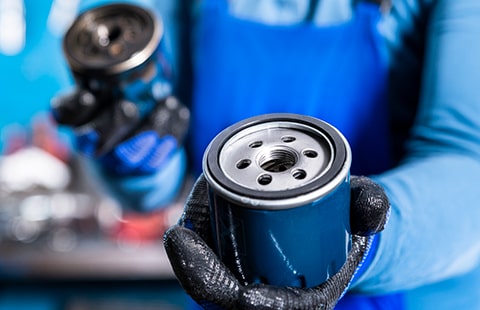Get unique, complex parts easily. No matter your requirements, Chaoyi Spring creates hard-to-produce coil springs and wire forms.
Let us help you create the custom wire form you need, from S-hooks and J-hooks to utility hooks and more.
We work closely with customers across a wide range of industries, helping them design and manufacture made-to-order parts.
Why choose Chaoyi Spring? We prioritize customer-focused collaboration, modern equipment and the latest technology to make your parts per print.
Find the information and guidance you need, from measuring a spring to learning about materials, placing an order and much more.
When it comes to vehicle suspension systems, two popular choices stand out: torsion bars and coil springs. Both offer unique advantages and disadvantages, catering to different driving needs and vehicle


When it comes to vehicle suspension systems, two popular choices stand out: torsion bars and coil springs. Both offer unique advantages and disadvantages, catering to different driving needs and vehicle types. While coil springs are more common in passenger cars, torsion bars are often preferred for trucks and SUVs due to their robust nature. Choosing the right suspension system depends on your priorities, whether it's ride comfort, handling, or off-road capability. In this article, we delve into the intricacies of each system, exploring their workings, pros and cons, and applications.

Torsion bars, essentially thick, solid steel rods, work by twisting when the vehicle's suspension is compressed or extended. They are often found in trucks, SUVs, and even some sports cars, thanks to their durable construction and ability to handle heavy loads. Their twisting motion generates a force that resists suspension movement, similar to how a coil spring compresses or expands.
Coil springs, on the other hand, are helical springs made from coiled wire, familiar to most car owners. As the vehicle's suspension moves, the coil spring compresses or extends, absorbing the shock and providing a smooth ride. They are known for their versatility, offering a wide range of spring rates and allowing for customization of the suspension.
Torsion bars boast several advantages: they are exceptionally durable and less prone to damage from harsh conditions. Their robust design can withstand heavy loads and off-road adventures with ease. This makes them a popular choice for trucks and SUVs, where strength and durability are paramount. However, torsion bars aren't without their drawbacks. Adjusting their spring rate can be a complex and time-consuming process, often requiring specialized tools. Their rigidity can also lead to a harsher ride, especially on rough roads, as they don't absorb shocks as effectively as coil springs.
Coil springs excel in ride comfort. Their ability to compress and extend smoothly offers a more forgiving ride on uneven surfaces. They are also relatively easy to adjust, allowing for customization of the suspension based on driving preferences. A wide range of spring rates are available, from soft and comfortable to stiff and sporty. Coil springs are also highly adaptable, allowing for the use of various shock absorbers and other suspension components. However, coil springs can be more susceptible to damage from heavy loads and off-road conditions, particularly if the vehicle is frequently subjected to extreme forces.
There's no clear winner in the torsion bar vs. coil spring debate. Both systems have their own strengths and weaknesses, making the right choice dependent on your individual needs and driving style.
Some manufacturers have innovated by combining the strengths of both systems. For example, some SUVs feature a torsion bar setup at the front for increased durability, while coil springs at the rear provide a more comfortable ride. This approach allows for a balanced suspension that tackles off-road challenges while offering a pleasant on-road experience.
Ultimately, the decision between torsion bars and coil springs hinges on your individual needs and priorities. Consider the type of vehicle you own, your driving habits, and the terrain you frequently encounter. If you prioritize durability and strength, torsion bars might be the better choice. For a more comfortable and customizable ride, coil springs are likely the way to go. By understanding the unique characteristics of each suspension system, you can make an informed decision that best suits your driving needs.
Whether you're cruising down the highway or tackling rugged trails, choosing the right suspension system can significantly impact your driving experience. Understanding the pros and cons of torsion bars and coil springs, and how they cater to different vehicle types and driving styles, empowers you to make the best choice for your automotive needs. So, consider your priorities, weigh the options, and drive with confidence, knowing your suspension is perfectly matched to your vehicle and driving style.
Browse some of the custom wire forms and springs that we manufacture. Don’t see what you need? We specialize in made-to-order products that meet your application requirements.
Visit Our GalleryNeed a custom wire form or coil spring? We make it work. Fill out the contact form and a representative will respond within 1 business day. If you have a PDF or CAD file, you can submit to request a quote.